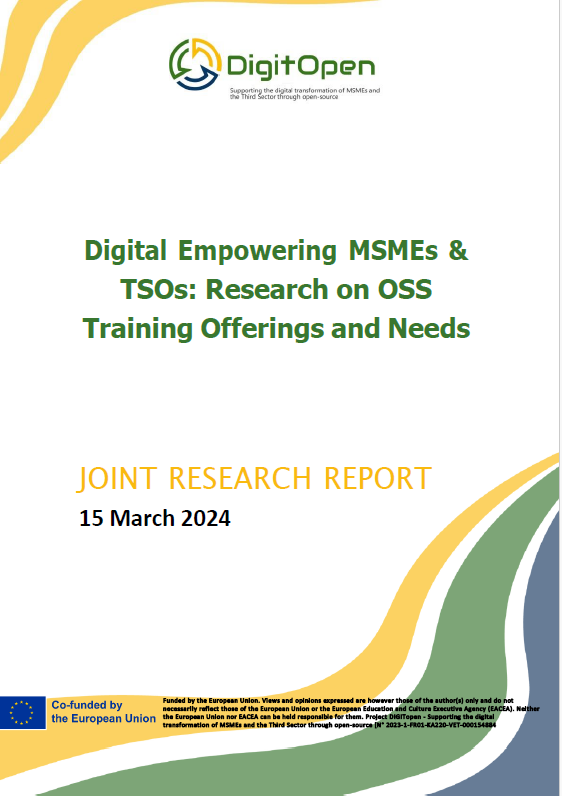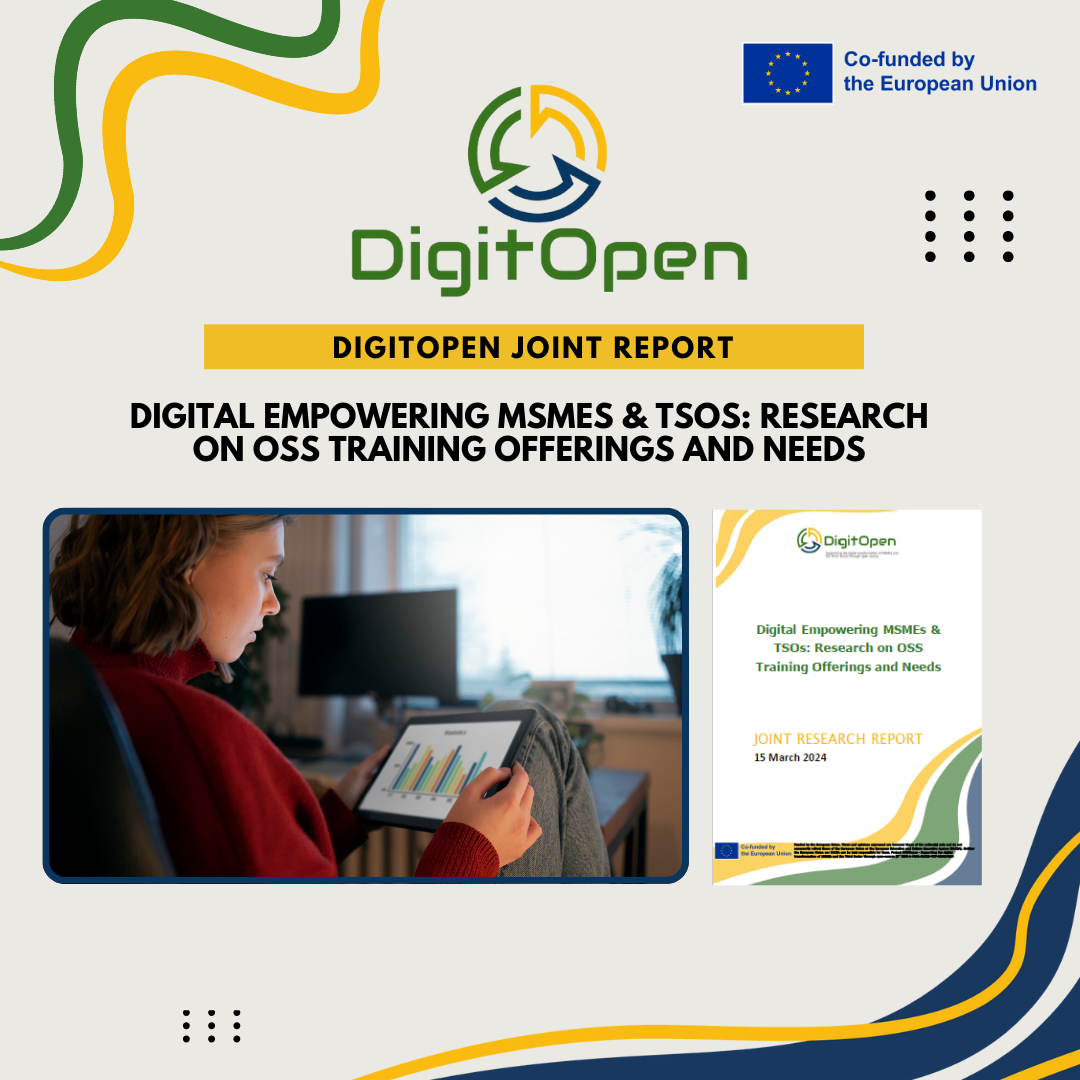The recent report from DIGITopen: Digital Empowering MSMEs & TSOs: research on OSS Training Offerings and Needs highlights an empirical study that mapped current OSS usage and readiness, alongside the training needs of MSMEs and TSOs across six countries: France, Estonia, Greece, Italy, Spain, and Poland. Despite extensive literature on OSS adoption, there’s limited research focusing on MSMEs and TSOs. This study fills that gap by exploring factors that influence OSS adoption using the Diffusion of Innovation (DOI) theory and the Technology Acceptance Model (TAM).
Key Findings
The study’s findings revealed that many MSMEs and TSOs are already exploring OSS, appreciating its economic benefits and flexibility compared to proprietary software. There is significant interest in future OSS adoption, driven by software quality, adaptability, reliability, maintainability, and support availability. However, knowledge barriers such as lack of awareness, insufficient strategic commitment, and limited organizational know-how persist.
Regional Insights on OSS Training
The analysis of current OSS training offerings across the six countries shows a varied landscape:
- France: Despite a developed digital training sector, specific OSS courses are lacking, highlighting a need for targeted training.
- Italy and Spain: These countries show potential for growth in OSS training for MSMEs and TSOs, with an underdeveloped focus on this area.
- Poland: Offers diverse OSS training covering topics like Linux and graphic design, catering to various expertise levels.
- Estonia: Focuses on practical skills, particularly in WordPress-based web development.
- Greece and Spain: Face limitations in customizing OSS training for MSMEs and TSOs.
The study emphasizes the importance of tailored OSS education to foster innovation and digital literacy in MSMEs and TSOs. It suggests a collaborative European effort to address regional training nuances and enhance OSS education strategies.
Training Needs and Preferences
The report details the diverse training needs for OSS adoption across the surveyed countries. For instance, Estonian participants prioritize training in marketing, communication, and project management, while Polish participants focus on digital fundraising and sales. Greek respondents emphasize management and marketing training, and Italian participants prioritize management. French participants show broad interest in cybersecurity, event management, and sales. These varying needs underscore the necessity for customized training programs that address specific regional requirements.
Training methods also vary, with Estonian participants favoring hands-on activities, Greeks preferring self-directed learning, and Italians valuing diverse approaches like webinars and interactive demos. French organizations highly value tutorials and hands-on experiences.
Barriers to OSS Adoption
Common barriers to OSS adoption include lack of awareness, organizational commitment, and technical proficiency. Polish respondents highlight a lack of understanding of OSS risks, while Greek participants point to organizational and technical obstacles. Estonian and French respondents also emphasize the need for greater technical know-how.
Report Structure
The report is structured into four comprehensive chapters:
- Research Design and Comparative Findings: Outlining the methodology and presenting comparative findings.
- National Research Reports: Offering insights into OSS adoption and barriers in different countries.
- Training Services and Programs: Discussing existing OSS training services and areas for improvement.
- Mapping the Landscape: Providing a comprehensive overview of MSMEs and TSOs’ technology adoption trends.
Each chapter contributes crucial insights into the OSS adoption scenario, barriers, training landscape, and the broader technological context across the six countries involved in the DIGITopen project.
The DIGITopen project is poised to make a significant impact by addressing these varied needs and challenges, fostering a competitive digital landscape for MSMEs and TSOs across Europe.


